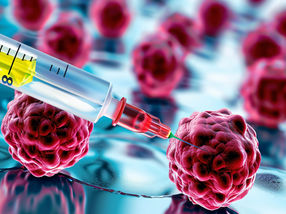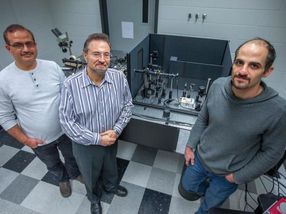Abbott and Reata Pharmaceuticals Announce Agreement to Develop and Commercialize Next-Generation Antioxidant Inflammation Modulators
Companies Plan to Explore Broad Therapeutic Potential of AIM Class
Abbott and Reata Pharmaceuticals announced that they have entered into a worldwide collaboration to jointly develop and commercialize Reata's portfolio of second-generation oral antioxidant inflammation modulators (AIMs). The agreement is in addition to the partnership between the two companies announced in September 2010 in which Reata granted to Abbott exclusive rights to develop and commercialize its lead AIM compound, bardoxolone methyl, outside of the United States, excluding certain Asian markets.
The collaboration announced is a global agreement and includes a large number of molecules in a broad range of therapeutic areas, including pulmonary, central nervous system disorders and immunology. Abbott and Reata will equally share costs and profits for all new AIMs in all newly licensed indications except for rheumatoid arthritis and select other autoimmune diseases, in which Abbott will take 70 percent of costs and profits and Reata will take 30 percent. The deal also includes a research agreement in which the companies will work together to discover new molecules that exhibit the same pharmacology as the AIMs already in Reata's pipeline.
Abbott will make a one-time license payment of $400 million to Reata. The companies expect the first compound in this collaboration to enter into human clinical trials in 2012.
Under an agreement reached in September 2010, Reata granted to Abbott exclusive rights to develop and commercialize its lead AIM compound, bardoxolone methyl, outside of the United States, excluding certain Asian markets. Reata retains U.S. development and commercialization rights. Reata and Abbott are currently conducting the BEACON study, a multi-national Phase 3 clinical trial of bardoxolone methyl in patients with stage 4 chronic kidney disease and type 2 diabetes.
Most read news
Organizations
Other news from the department research and development

Get the life science industry in your inbox
By submitting this form you agree that LUMITOS AG will send you the newsletter(s) selected above by email. Your data will not be passed on to third parties. Your data will be stored and processed in accordance with our data protection regulations. LUMITOS may contact you by email for the purpose of advertising or market and opinion surveys. You can revoke your consent at any time without giving reasons to LUMITOS AG, Ernst-Augustin-Str. 2, 12489 Berlin, Germany or by e-mail at revoke@lumitos.com with effect for the future. In addition, each email contains a link to unsubscribe from the corresponding newsletter.






















































